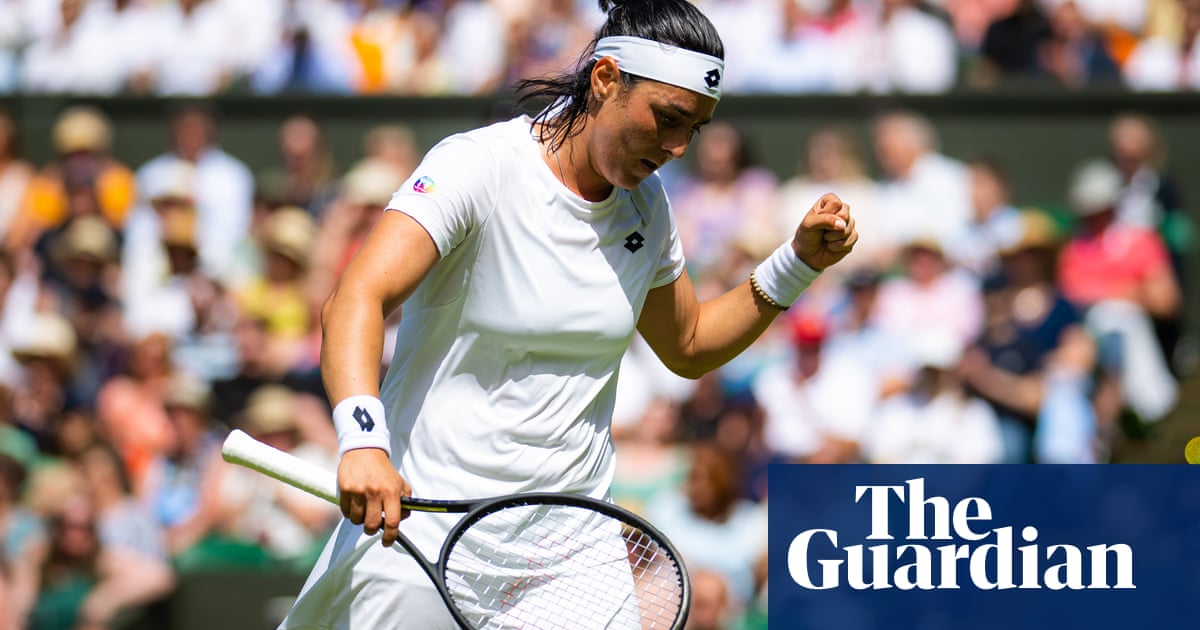Ons Jabeur brings Tunisian tennis to the brink of history - 3 minutes read

In the six years since Jabeur broke into the world’s Top 100 in 2016, the Tunisian star’s ascent has seen a flurry of firsts. In October last year she became the first Arab player – man or woman – in the world’s Top 10. This year she won the Madrid Open, becoming the first Arab or north African woman to win a WTA 1000 event.
“Subscriptions to the school of tennis have exploded over the last two years, even through the lockdown and the pandemic,” said Sammi Baccar, the club’s sports director, pointing to a long list of young champions the club has produced. “I have never known tennis be this popular in Tunisia.”
At Tennis Club de Tunis, the female champion isn’t simply a distant figure known only through television. She is one of them, drawing spectators to her like moths to the flame whenever she plays.
“It’s very important to see that she hasn’t changed a little bit because of the fame,” said Baccar, perched on a plastic chair. “She loves all the little kids. My kids, she always remembers their names and the details of their lives.”
Leaving the ladder down for others to climb after her is a personal ambition of Jabeur, as she revealed in an interview with the Guardian last month. “I see myself like I’m on a mission,” she said.
“I tell myself I chose to do this. Let’s say, I chose to inspire people. I chose to be the person that I am. I want to share my experience one day and really get more and more generations here.”
Over the years, tennis in Tunisia has grown from an elite sport to one that is routinely played and watched with interest in cafes across the country, a shift freelance sports journalist Souhail Khmira attributes directly to Jabeur’s success.
“Sporting success isn’t just for men. However, Ons has shed more light on that. She’s walked in the footsteps of all those women and paved the way for a lot of young girls to follow. They’ve watched her, this middle class girl, and the obstacles she faced and overcame.”
Playing inside Tennis Club de Tunis’s maze of courts, 14-year-old Sarah Boughzala will be among the millions of Tunisian teenagers who will be watching the final tomorrow, and an admirer of one of Jabeur’s favourite techniques. “Her drop shot is very good. She knows how to use it to win,” she said.
To the millions of young Tunisian girls watching, the message Jabeur sends is resoundingly clear. “She’s very inspiring and one day I want to be just like her,” says 12-year-old Fatma Hamdouni, smiling at the mention of Jabeur’s name. “She can do anything she wants. She just needs to believe in herself.”
Source: The Guardian
Powered by NewsAPI.org